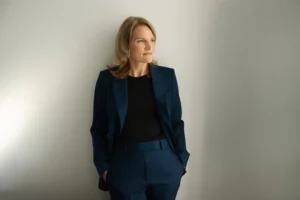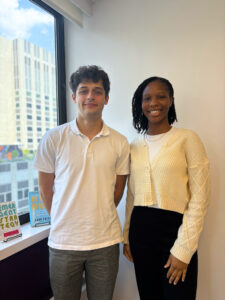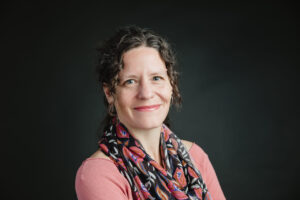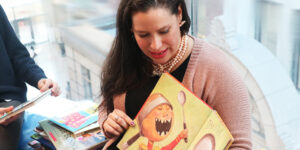What is one of your earliest memories of the power of human connection?
My earliest memory would actually take me back to India. I was born in New Jersey, then I lived with my grandparents for the first five or six years of my life in India in a small village called Haryana. My grandfather would oftentimes take me to different settings and different environments to expose me to different parts of the culture, to meet different people, and to engage.
When I came back to the U.S. and started meeting all these American kids with different backgrounds, different identities, and different ethnicities, integrating into that environment was a challenge. I moved every two years until high school. I was constantly meeting new people and exposed to new environments.
What was fascinating was the lesson that I learned in India about being open, being ready, being able to listen, opening up your heart, not judging. It was so powerful because I thought, “This is not about me. This is about everyone else, so let me create space for the other.” That was what started building my friendships at the age of seven, and it’s what I have carried with me over the last 15 years.
What values guide your personal life and also your work?
The most important value for me is the value of curiosity. We live in a world that is so filled with chaos and constant change and tumult. Anyone who claims that they know what the future looks like or that their ideas are right 100 percent of the time — that’s a snake oil salesman today.
Curiosity means you are showing up with an idea of what the world ought to look like. You have got your own beliefs, but you are ready to listen. Being able to listen at a time of tumult allows you to be ready as a human in this world of constant change and allows you to show up and see other people.
People are looking to be heard and for someone to say, “Hey, I hear you. I want to listen to you, and I want to work with you.” I think it’s incredibly powerful if you could make that gesture at this time when everyone else is ideologically rigid or shows up with outrage.
What are you working on right now?
We are building college chapters across the country through an organization called BridgeUSA, of which Einhorn Collaborative has been incredibly supportive. In order to empower the next generations to lead in this world of constant change, then we have to equip them with the ability to listen, bridge-build, and be able to talk to people who are different from them. Bridge-building is a 21st-century skill. It’s just as important as trying to understand AI.
Right now, the norm is outrage; it’s the way you get influence and power. But that’s not how you build a productive society. Our college chapters are civic spaces where people of different backgrounds can engage, listen, and have tough, and productive disagreements. Ultimately, they leave these conversations maybe not changing their minds but with the desire for curiosity.
What is giving you hope? What positive visions do you have for our future?
Here’s a problem with hope: when you are chasing something, it gets farther and farther away. Everywhere I go, people say, “Hey, where’s hope?”
How about this? Instead of trying to chase hope and a desire for an optimistic frame of the world, let’s just live in our own shoes. Be present in your daily interactions. When we are present and grounded, we start to be more curious in our daily lives. What we find is the person we thought we could never learn anything from can share something that’s profound and powerful. It opens our world to things that we aren’t noticing.
When you put this perspective against the gush of constant change in the world that we live in, then hope naturally comes.
When did a person or experience change your mind about an idea or belief?
I was set on a path of becoming a doctor. In the second semester of my freshman year at UC Berkeley, we had a speaker come to campus named Milo Yiannopoulos, and it led to some of the largest protests in Berkeley’s history about free speech, dialogue, and deliberation — costing the university hundreds and thousands of dollars. Those protests were so tumultuous that the next day, some random people and I got together and said, “This is not normal. This is not okay.”
The protests weren’t about free speech. People had lost so much hope in each other that they felt the need to be violent in expressing their views, both on the left and the right. This wasn’t a partisan issue. In response, we hosted a conversation and dialogue where we brought together the people who protested the speaker and people who were passionate about the speaker. It was honestly very naïve.
And yet, my co-founder, Ross, had this brilliant idea at that time. He said, “What if we open up this conversation, not with people’s policy preferences, but each other’s vulnerability? Like, talk about who you are as a human.” That vulnerability cut through human ignorance like a hot knife through butter.
More importantly, it showed me that we radically underestimate the power of a conversation, and we radically overestimate how divided we are.





